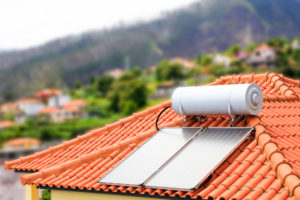The homeowners can get numerous benefits by getting installed water heater systems of solar compared to gas and electric hot water systems. The benefits depend on the type of system the homeowner currently has, the type of energy sources available connected to the home at the time of the installation. It also depends on the local climate, available water supply, available roof space and orientation and available space for the storage tank. However, the most important considerations are the home owner’s needs, then their budget weighed against their expectations for solar hot water installers. There are so many sizes and types of solar water heating systems that can satisfy almost the needs of anybody.
Solar hot water systems are cheaper than other energy-consuming systems:
It is the issues of budgets and expectations where the client and installers rely on each other to make the right choice. Most solar hot water systems will be significantly cheaper to run than any other type of system. However, the upfront costs of going solar are normally double that of going to gas and three to four times greater than a straight electric to electric heater system swap. Then there is the need to consider the higher maintenance costs associated with solar.
Homeowners should also be aware that as a rule of thumb, the more energy-efficient and environmentally friendly the solar hot water installation system is, the higher the installation costs and the maintenance cost will be. As part of the budget considerations, it is important that residents ask the installer about the costs of spare parts and the likely ongoing maintenance costs. Then compare the overall costs to other brands and types over the expected life of the installation. Most homeowners will probably find that they may never see a financial benefit from changing to solar hot water.
Alternatives to solar water heater systems:
There are cheaper alternatives to solar hot water installers or heater systems that will significantly reduce a household’s greenhouse gas emissions. Homeowners might consider a high-efficiency natural gas storage system or a high-efficiency natural gas Continuous flow system. Some of these have comparable greenhouse gas emissions to a similar-sized electric-boosted solar hot water system. The upfront change over cost from an electric to a natural gas system is usually half of the cost of changing from electric to solar or gas to a solar hot water system. The maintenance costs are also significantly lower as the spare parts are generally cheaper and there are fewer components that can fail.

